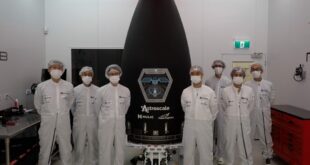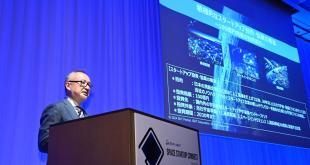
London, 15/02/2023 – Japan will test its next-generation rocket from Tanegashima Space Centre this Thursday. The Japan Aerospace Exploration Agency (JAXA) with Mitsubishi Heavy Industries as a prime contractor have developed the H-III rocket.
Standing at 63 meters tall, the H-III is the first major upgrade to the country’s rocket program in over 20 years. Acting as an alternative to the H-IIA currently used, this new two-stage rocket has been designed to be more powerful, cheaper and safer. It is expected to play a role in construction in the next decade of a new space station – Gateway- that will orbit the moon.
To cut launch costs to $50 million, 50% less than the H-IIA, Mitsubishi has used automotive parts for 90% of the H-III’s electronics, such as sensors. H-III is the first rocket to use an “expander cycle” system for its main engine instead of a mini engine. Mitsubishi Heavy has designed grooves on the combustion chamber walls, allowing it to pick up more heat and pressure to drive the pump. As a result, the first stage has 50% more thrust than the H-IIA, which uses the mini engine setup.
H-III will aim to take part in commercial launches. Mitsubishi Heavy aims to offer H-III ride-share services in which one rocket carries multiple satellites. With the ever-growing demand for commercial launches, H-III could fill a gap after Russia’s withdrawal of its Soyuz vehicles following its invasion of Ukraine.
“We’re receiving twice as many inquiries about our service as [before Russia pulled out],” says Iwao Igarashi, General Manager for business development at Integrated Defense and Space Systems at Mitsubishi Heavy.
Marketing the H-III will be easier after it has completed its first two demonstration launches. The second one is scheduled for sometime in the next fiscal year, starting next April.





